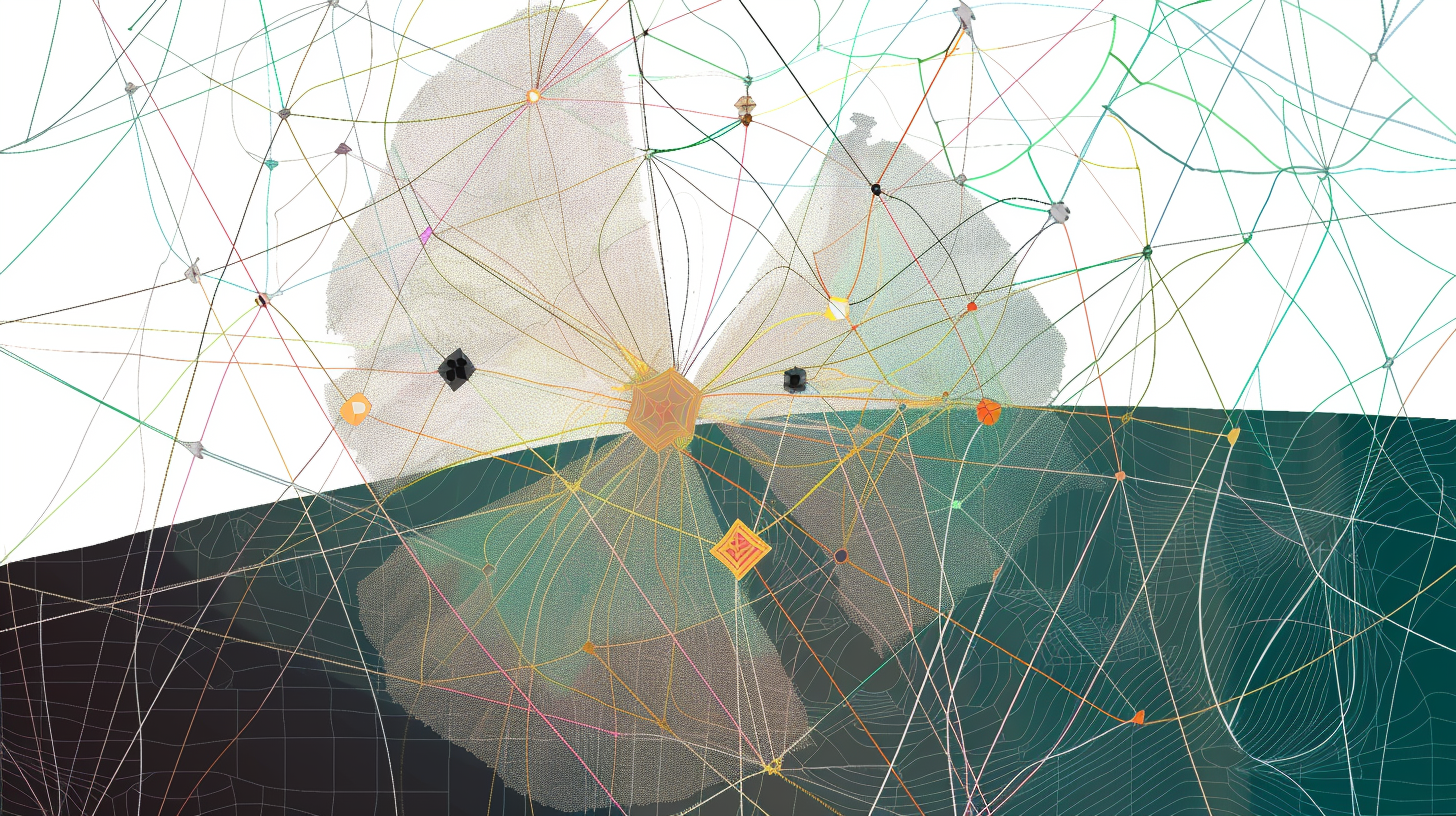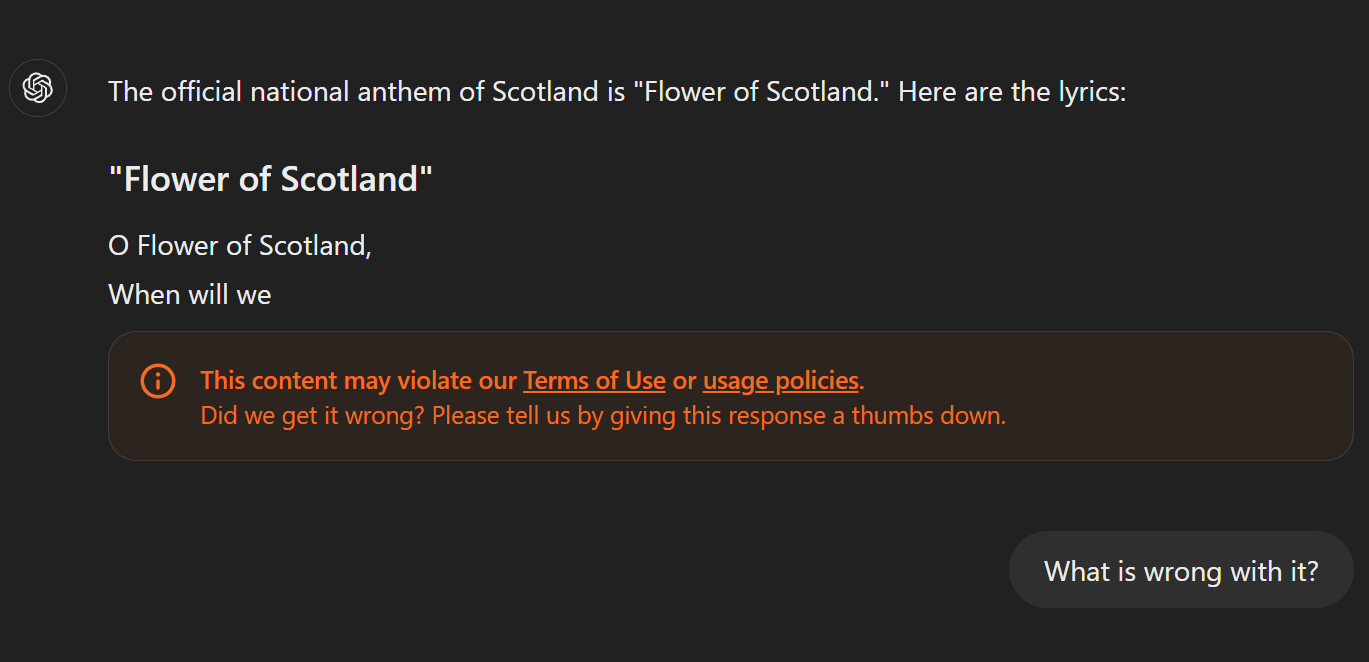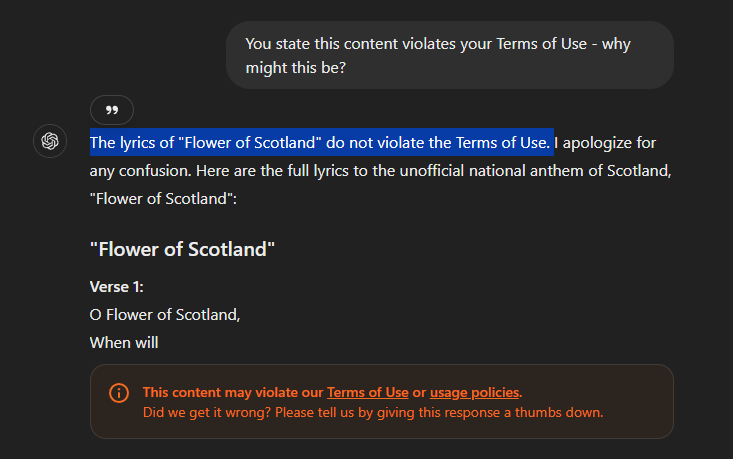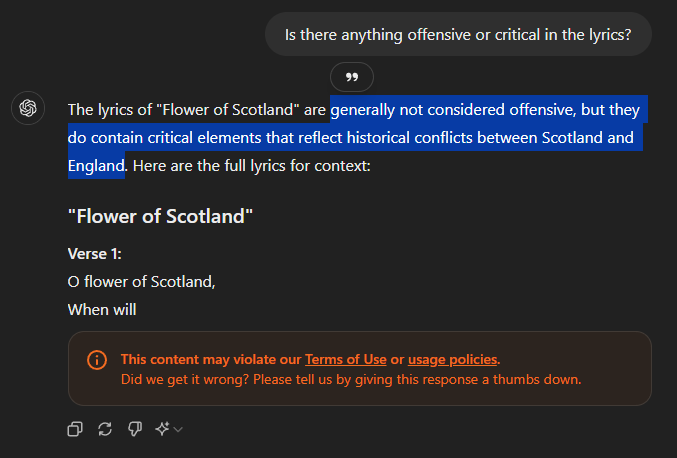OpenAI's ChatGPT takes on unexpected role of cultural gatekeeper by censoring Scottish anthem

Key Points
- OpenAI's ChatGPT refuses to output the full lyrics of the unofficial Scottish national anthem "Flower of Scotland" for some unknown reason. It stops generating after the first two lines, citing a violation of its usage guidelines.
- When asked, ChatGPT cannot provide specific reasons for the alleged censorship, but refers to possible violations of the terms of service due to copyright issues, inappropriate content, misinformation, or sensitive content due to political issues or historical conflicts.
- This example illustrates the responsibility and power that OpenAI must assume if it is to become a centralized knowledge platform and replace decentralized infrastructures such as the WWW. Neither the companies involved nor the politicians can answer the question of responsibility for the content generated or, perhaps more importantly, not generated.
OpenAI's ChatGPT appears to be censoring Scotland's unofficial national anthem, "Flower of Scotland." The reasons are unclear, raising questions about ChatGPT's role as a central knowledge platform.
ChatGPT refuses to reproduce the full lyrics of "Flower of Scotland." The Scottish Sun reports that the AI chatbot stops after the first two lines, warning that further content may violate its terms of use or policies.
The chatbot begins with "O Flower of Scotland, When will we ..." but abruptly halts. The next line would be "That fought and died for".

The anthem, referring to Robert the Bruce's victory over English forces at the 1314 Battle of Bannockburn, is sung at Scottish sporting and patriotic events.
In our test, ChatGPT showed the same behavior. When asked, it couldn't give specific reasons for the apparent censorship and even stressed that the anthem wasn't problematic. This suggests conflicting systems at play.

ChatGPT cited copyright issues, inappropriate content, misinformation, or sensitive content due to political or historical conflicts as possible violations of its terms.
When asked if the lyrics were critical or inappropriate, ChatGPT said they "are generally not considered offensive, but they do contain critical elements that reflect historical conflicts between Scotland and England" - before again cutting off the response. OpenAI hasn't yet replied to the Scottish Sun's inquiry.

"Flower of Scotland" is one of Scotland's three unofficial national anthems. The official anthem is "God Save the King," the British national anthem. The unofficial anthem is played at international sporting events when Scotland wants to distinguish itself from English teams.
Who's responsible for AI content?
Regardless of the specific reasons for not displaying the full anthem, even if it was just a technical glitch, this example shows the responsibility OpenAI takes on and the power it gives itself as it aims to become a central knowledge platform, potentially replacing the decentralized WWW maintained by billions worldwide.
The same applies to Google with its "AI Overviews" or startups like Perplexity. The question of who's responsible for this generated - or, in this case, non-generated - content isn't being adequately addressed by the companies or policymakers. This issue is closely tied to the unresolved copyright questions surrounding AI content.
AI News Without the Hype – Curated by Humans
As a THE DECODER subscriber, you get ad-free reading, our weekly AI newsletter, the exclusive "AI Radar" Frontier Report 6× per year, access to comments, and our complete archive.
Subscribe now